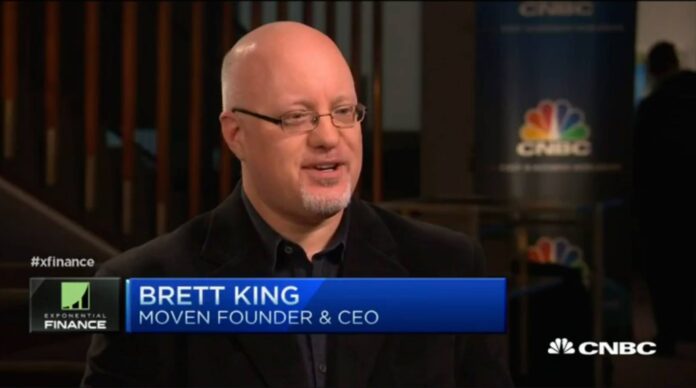Delighted to bring you a quick catch up with the awesome global fintech influencer that is Brett King. He has recently become involved as an advisor with Nebeus who are launching their ICO. We picked his brains on blockchain, fintech, and how he assesses which ICOs have value.
How and why did you get involved in blockchain?
It became clear to me around 2011 that blockchain was something that was very interesting and had massive potential to disrupt the way we think of databases, bank accounts, and so forth. I actually thought that optimal scenarios for blockchain was payments and identity verification or KYC.
Brett King – Author, #Augmented and #Bank4.0 (coming soon) speaking on the Evolution of Currency #Fintech #DigitalCurrency at the Global Leadership Forum 2017 in Seoul, Korea (Nov 2017) #GLF2017
View more: https://t.co/V5uWPlAKRP#futurist #keynote #speakers #futurism #crypto pic.twitter.com/BFJtiSvTow
— Brett King #Technosocialism #OptimalHumanity (@BrettKing) November 27, 2017
1 min pitch for why do you find Nebeus project interesting & what inspired you to get involved?
I’ve resisted getting involved in too many ICOs but Nebeus paralleled our own thinking in terms of the formation of Moven back in early 2011, namely a sort of globally accessible bank account built off a bank account that wasn’t framed by the typical banking core system thinking. The ability to leverage their tokens to underwrite a credit facility was a really interesting take on accessibility to credit that I liked – tying utility around credit to the coin. From a legal perspective this also ticked the box in respect to the token being differentiated from pure equity which is where regulation seems to be tightening.
We are not a start up – we have a strong team of professionals.
Meet one of them – @BrettKing. International best-selling author, famous banker, lead advisor and shareholder of Nebeus.
Learn more about our dream team now https://t.co/DfuBR11L3W
#ICO #nebeus #cryptocurrencies pic.twitter.com/EEqsYocpxw— Nebeus (@NebeusWorld) November 22, 2017
From other ICOs you have seen, what are your tips for a successful ICO?
Having a token that is clearly utility based – that as the utility of the business grows that the token acquires greater value, not one tied to valuation I think is really key.
How do you evaluate good projects to decide which ones you will work with? What are the most important aspects?
I’m extremely time poor, as you know Simon, so being able to add value quickly and precisely is key. For projects where people are looking for a lot of my time, I have to pass, or where people don’t have a clear value exchange proposition in return for my time investment. Over the last 12 months or so I’ve done more than 30 countries and over 350,000 miles on the road – as well as being the Executive Chairman/Founder of Moven, being on the board of a number of companies, etc. So time is my most valuable asset. I really can only take on a few projects like this annually.
Are we in a period of ICO hype and over expectation, or will we continue to see more ICOs in 2018?
I think as regulation kicks in we’ll see a normalization of the ICO market. Right now it’s like lots of IPOs but there’s no stock market. Once we formalize regulation around the operation of ICOs then I expect some heat to come out of the market as the scammers disappear.
How do you see future of crypto economy / blockchain overall?
I think next year will be the year we see blockchain starting to operationalize, moving out of prototype mode into operational projects integrated across a wide range of businesses. In terms of crypto that’s a much bigger discussion, but I’m bullish on crypto generally. I think we’re seeing the creation of digital assets and digital marketplaces that are still in their infancy but will be the norm moving forward.
Anything else you’d like to add / we should have asked?
It’s pretty clear that what we consider a bank account, is no longer restricted to a value store operated solely by a chartered financial institution. Thus we need to start looking at what will differentiate the characteristics of a bank account moving forward, and accessibility, transparency and utility combined with a smart platform are key.















